Former East Van MLA Bob Williams on his Childhood Days at the Cabin
Local politician Bob Williams (b. 1933) remembers days of bottle-picking to make money, making immigrant friends and spending summers at his grandmother’s cabin in Dollarton.
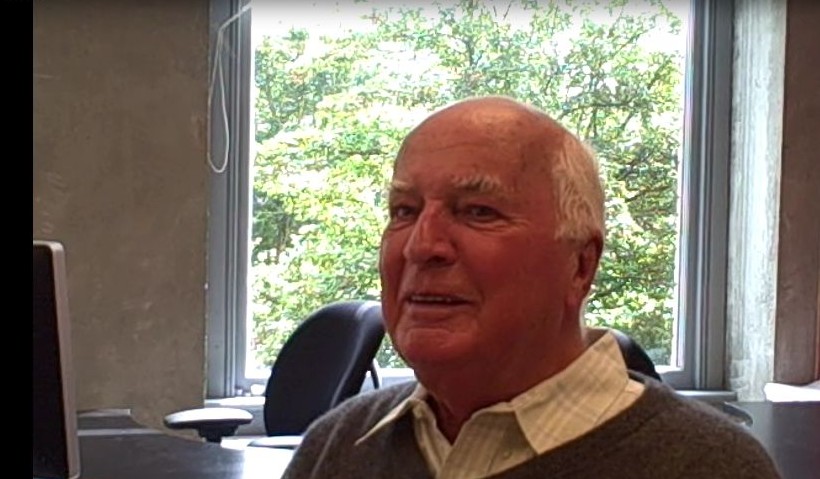
Childhood
I was born at the Salvation Army Home for Unwed Mothers in South Vancouver. The intent of the Sally-Ann was to have me adopted out, and my mother, who was 15 or 16 at the time, wasn’t going to have that, so she escaped from the home with me in her arms.
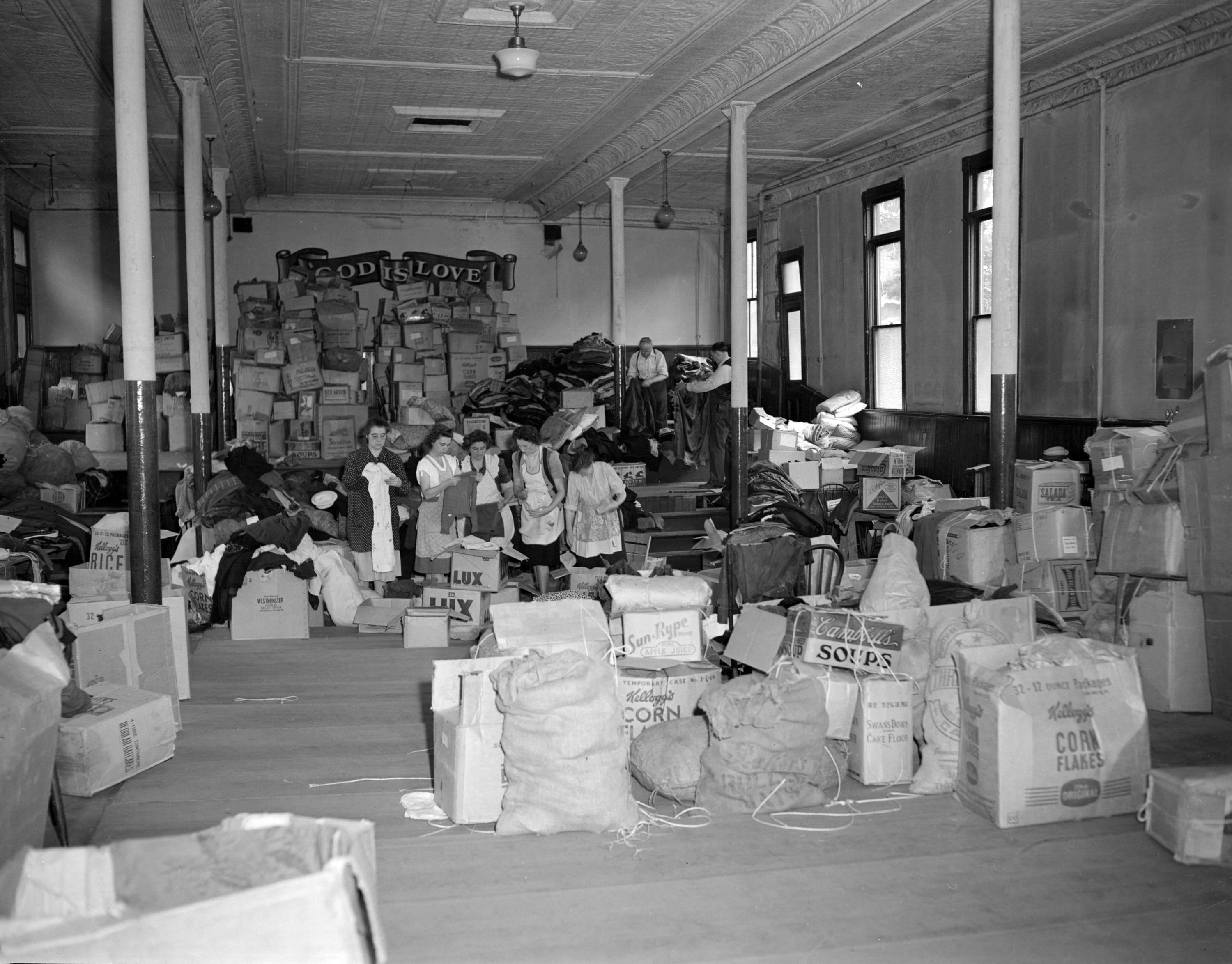
Image credit: Jack Lindsay, public domain
After that, the first home I remember was on the east side, a little further east of Grandview about Beckonsfield Elementary School around 20th and Nanaimo. There was a branch of Still Creek beside our house; we lived in a little four-room shack by the creek with a big pear tree. There was a Ukrainian across the street whom I befriended. He worked as a rag-picker at the adjacent dump; the city dump was where the Italian Cultural Centre is now. It was all a filler for the creek basin. So before school or around my first days in elementary school I joined the Ukrainian rag-picker in the dump and helped him out all day in my overalls. I came back smelling like dump, but worse than that I smelled like garlic because they were Ukrainian and we were Anglos and we didn’t have garlic in our house. My old man, my dad—my stepfather, in truth— said “Jesus, he’s been out with the God damn Ukrainian again!”
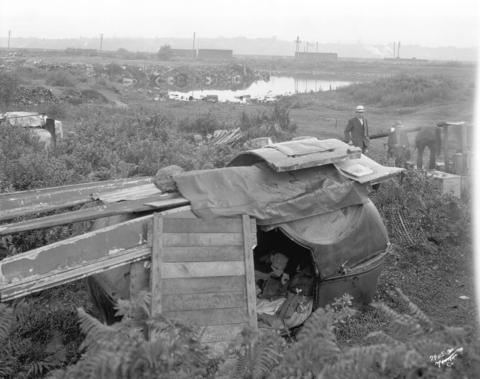
Image credit: M. James Skitt Matthews, public domain
I delighted in it because I loved the flow of new immigrants that came into the east side. For us, the sort of very conventional, working class Anglos, it was a wonderful whole new world. And also, there was wonderful Italian food. I got hooked after the Italians started flooding into the neighbourhood after World War II. I’m totally hooked on it, an Italophile completely; I go to Italy almost every summer.
Kids generally don’t know how poor they are, but I’m quite sure I did because just getting some of the gains of rag-picking or bottle-picking was exciting, a chance to get into the economy out there. I can remember picking up vegetables in the street to help my family.
Summers in North Burnaby
For a time during the ’40s, my dad was in the Army, but he never went over seas. We lived in Vernon for three years. There’s a big military camp out there even now. We lived in a tiny place in Okanagan Landing. I hated it up there as a kid, because I loved the city. I came down and spent the summer with my grandmother in North Burnaby. It’s still probably the deepest part of my memory, spending the summers with my grandmother. She seemed wealthy by our standards because she owned a house! Albeit in North Burnaby with a plank road. They were members of the North Burnaby Horticultural Society. In those days, and during the war effort, there were horticultural societies in every neighbourhood in the city. It was very fascinating. So I developed a love of plants and growing things in that early stage because my grandmother was determined to educate me. I used to go out to all of the Horticultural Society sessions, see the quality of the fruits and vegetables and flowers and who won the gold ribbons and all that stuff.
More than that, the most indelible memory for me was going over to her summer cabin, which was in an area now called Kate’s Park, near Roche Park, Dollarton. Those were probably the most enjoyable times of my life. She kept a rowboat on the south side of the inlet. We hiked from Gilmore Avenue all the way up Capitol Hill and then over the hill and down the other side to get to her boat. Someone looked after it, because there were shacks right along the CPR right on in Burnaby and the east side, False Creek and Coal Harbour. All of our prime addresses now were squatters who didn’t have a pot to pee in—or a toilet to pee in, either, as I recall. They were wonderful summers.
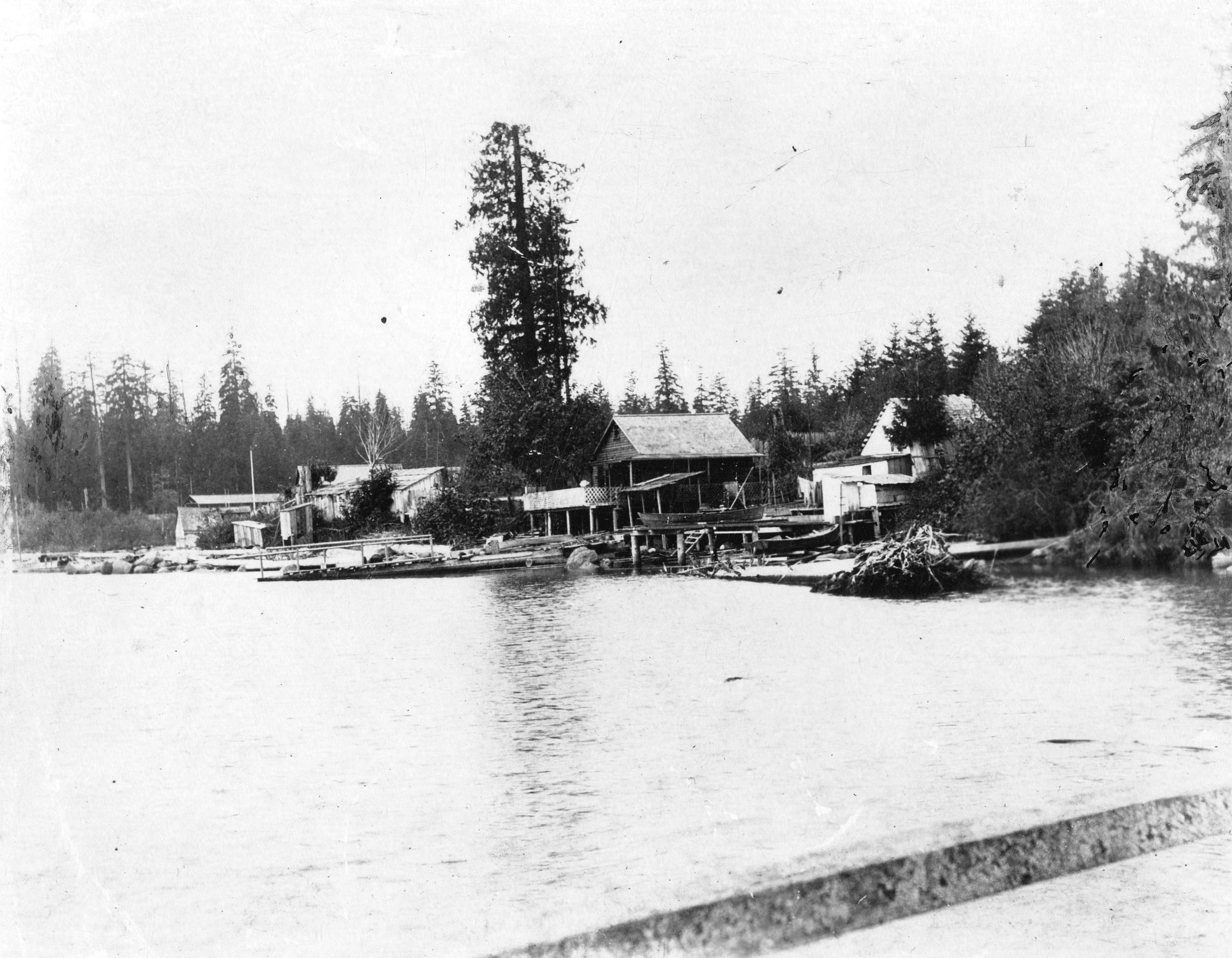
Image credit: M. James Skitt Matthews, public domain
My grandmother was a widow and a flirt! And here I was, a kid, 10-12 years old, and I started understanding who my granny really was, this other side of her. My grandfather—her husband—had been a motorman on the street railway system, and that was one of the great trade unions in this city. One of the other motorman became her lover. He lived at home with a woman he called his housekeeper, and my grandmother was his mistress. And I finally started knitting all that stuff together. So Charlie— the lover—kept a little putt-putt boat in Coal Harbour, an old Briggs and Stratton engine. On one of his two days off, he’d take the putt-putt right up the inlet and I’d watch him coming under the bridge and finally arriving in the cabin.
The cabin was very habitable, a very pleasant place. It was a one-bedroom cabin and I slept in the living room; from my window I could look down the inlet and see the red Woodward’s sign from up there—it was one of the signs of civilization. The other one was a light at Barnet in North Burnaby, which in those days was their city dump as well. So in that big gully at Garnet there was that one light.
I didn’t expect to get into all of this but that’s what memory does for you—when you still got it. Down the inlet, near Roche Point, Malcolm Lowry lived with Marjorie Bonner. My grandmother said “Bobby, don’t ever go near that man. He’s talking, and his in just his khaki shorts, and he’s always drunk, talking to himself, stumbling along the beach.” So I didn’t. I was a dutiful grandson. I watched him and he looked like trouble all right, so I avoided him. But I knitted it all together a little later, of course.
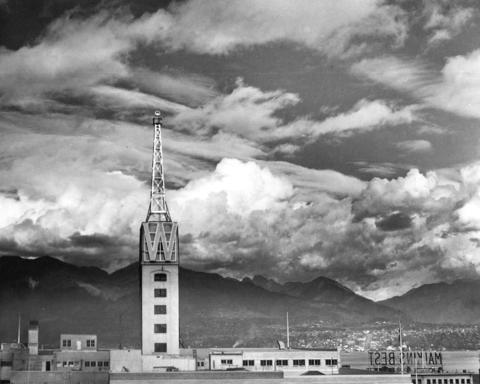
Image credit: M. James Skitt Matthews, public domain
There was a fundamental thing that happened to me there, around the around the question of private property. I mean, we were squatters—we didn’t have any so-called right to be there. In those early days, during the War, housing was really short. All these people would basically put up pilings and started building. In my grandmother’s case there were three friends who put up a group of shacks. Hers was a cottage; others were shacks. They put pilings up and stacked things on it, but there was no water or plumbing, and getting water was a chore. And we might walk all the way up the trail and along the Dollarton Highway to Commons General Store at the big bend of the road on the Dollarton Highway. It’s not there anymore but it was very upper-middle class. We picked up a few things because Charlie always paid for them when he came on the weekend. But the job was to fill up two galvanized buckets of water when we were at the General Store, and then hike, probably a mile-and-a-half back to the cabin with buckets of water. The alternative, when we had a little Tinker-Bell row boat, was for Bobby to get in the row boat with buckets and go to the nearest creek, which was McCartney Creek. And McCartney Creek was on the other side of McKenzie Barge and Derrick.
There was a private owner there, and he had a shack that was no better than my grandmother’s, but he was a son-of-a-bitch. So I was this little boy coming up on the rocky beach, and it’s greasy and slimy, and I had my cheap Japanese runners on and black denims which embarrassed me at school because the teachers said you shouldn’t be wearing denims to school. There were only black denims in those days, and I think they were Asian, so I had cheap shoes and cheap pants. I scrambled over the greasy rocks—they were all covered with seaweed and slime—up to where the water wasn’t brackish and filled the two buckets, generally with a ladle, and then back to the boat, hoping the son-of-a-bitch who was up on the porch wouldn’t see me. But he would generally see me. So I was this little boy, crouching down, carrying these two buckets into a clinker boat, which is difficult, and then I had to push the boat off. If I was lucky, only half a bucket each spilled. And I was ashamed of myself, a boy getting water for my grandma. It cuts me up, even now. Later, I read Malcolm Lowry, and he has a lovely story called The Forest Path to the Spring, and it is exactly the same incident about feeling shame, about how unjust it was. Our family was a left wing family anyway, but stuff like that just sticks, and you don’t let go of it. I still continue to have some views about property rights which are not conventional, so I fit naturally into the CCF and the NDP. Most people these days don’t have any sense of the element of injustice in property rights. But I loved my summers there. Even in my dreams now, that’s the strongest element. It was a wonderful time.
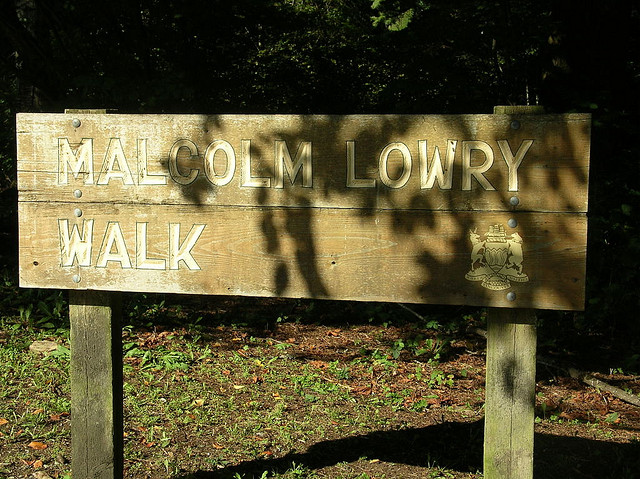
Image credit: Stephen Rees, CC, Flickr
Story edited by Jade McGregor
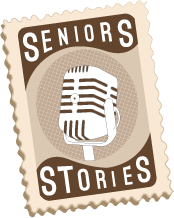



Leave a Reply